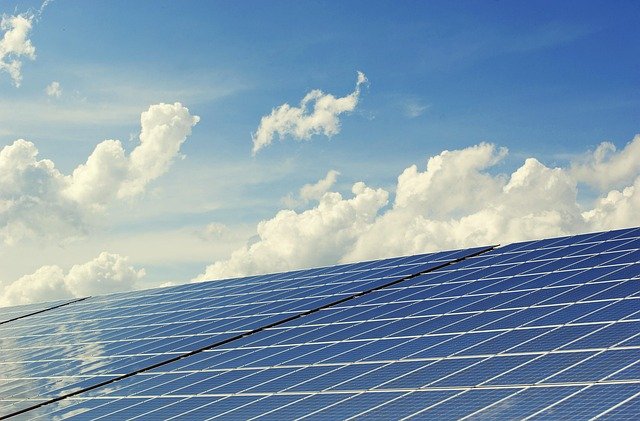Your 2025 Heat Pump Investment: What You Need to Know
As we approach 2025, heat pumps are becoming an increasingly popular and efficient solution for both residential and industrial heating needs. This article will explore the latest developments in heat pump technology, focusing on high-temperature and large-scale applications for industrial use and district heating projects. Whether you're considering an investment in heat pump technology or simply want to stay informed about the future of heating solutions, this guide will provide you with essential information to make informed decisions.

What are High-Temperature Large Scale Heat Pumps for Industrial Use?
High-temperature large scale heat pumps are advanced systems designed to meet the demanding heating requirements of industrial processes. These pumps can generate temperatures up to 160°C, making them suitable for a wide range of applications in manufacturing, food processing, and chemical industries. Unlike traditional heating methods, these heat pumps can efficiently extract heat from low-temperature sources and upgrade it to higher temperatures, significantly reducing energy consumption and carbon emissions.
How are Industrial Heat Pump Manufacturers Innovating?
Industrial heat pump manufacturers are constantly pushing the boundaries of technology to improve efficiency, reliability, and versatility. Recent innovations include:
-
Advanced compressor designs that can handle higher temperatures and pressures
-
Smart control systems that optimize performance based on real-time demand and energy prices
-
Integration of heat recovery systems to maximize overall efficiency
-
Development of heat pumps that can use natural refrigerants, reducing environmental impact
These advancements are making industrial heat pumps an increasingly attractive option for businesses looking to reduce their energy costs and carbon footprint.
What Makes High-Temperature Industrial Heat Pumps Different?
High-temperature industrial heat pumps are specifically engineered to produce heat at temperatures significantly higher than standard heat pumps. This capability is crucial for many industrial processes that require temperatures above 100°C. Key features of high-temperature industrial heat pumps include:
-
Specialized refrigerants that can operate at higher temperatures without degrading
-
Robust compressors capable of withstanding increased pressures
-
Enhanced heat exchangers designed for optimal heat transfer at elevated temperatures
-
Advanced control systems to maintain stability and efficiency across a wide temperature range
These features allow high-temperature industrial heat pumps to replace traditional fossil fuel-based heating systems in many industrial applications, offering both environmental and economic benefits.
How Do Industrial Air Source Heat Pumps Work?
Industrial air source heat pumps (ASHPs) extract heat from the ambient air and upgrade it to useful temperatures for industrial processes. The basic operation involves:
-
A fan draws in outside air across an evaporator coil containing refrigerant
-
The refrigerant absorbs heat from the air and evaporates
-
A compressor pressurizes the refrigerant vapor, raising its temperature
-
The hot refrigerant passes through a condenser, transferring heat to the industrial process
-
The cooled refrigerant then expands and returns to the evaporator to repeat the cycle
Industrial ASHPs are particularly attractive because they can operate efficiently even in cold climates, providing a reliable and sustainable heating solution year-round.
What Role Do Large Scale Heat Pumps Play in District Heating Projects?
Large scale heat pumps are becoming increasingly important in high-efficiency district heating projects. These systems can provide heat for entire neighborhoods or industrial parks, offering several advantages:
-
Centralized heat production leads to higher overall efficiency
-
Ability to utilize waste heat from industrial processes or other sources
-
Flexibility to integrate multiple renewable energy sources
-
Reduced maintenance costs compared to individual heating systems
-
Improved air quality in urban areas by eliminating localized emissions
As cities and regions strive to reduce their carbon footprint, large scale heat pumps for district heating are likely to play a crucial role in the transition to sustainable urban energy systems.
| Heat Pump Type | Application | Temperature Range | Typical Capacity |
|---|---|---|---|
| Industrial Air Source Heat Pump | Manufacturing, Food Processing | Up to 90°C | 100 kW - 1 MW |
| High-Temperature Industrial Heat Pump | Chemical Processing, District Heating | Up to 160°C | 500 kW - 10 MW |
| Large Scale Heat Pump for District Heating | Urban Heating Networks | 70°C - 120°C | 1 MW - 50 MW |
Prices, rates, or cost estimates mentioned in this article are based on the latest available information but may change over time. Independent research is advised before making financial decisions.
As we look towards 2025, investing in heat pump technology, particularly for industrial and large-scale applications, presents a compelling opportunity. The advancements in high-temperature capabilities, improved efficiency, and the integration of smart controls are making heat pumps an increasingly viable solution for a wide range of heating needs. Whether you’re considering upgrading your industrial processes or exploring options for district heating projects, understanding the capabilities and benefits of modern heat pump systems is crucial for making informed decisions that will impact your energy costs and environmental footprint for years to come.




